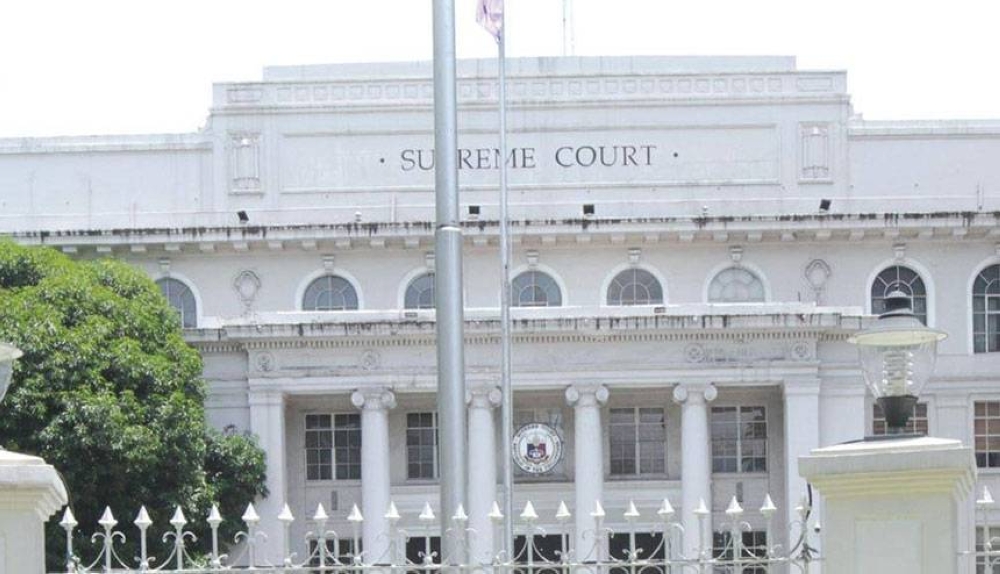
THE Supreme Court (SC) is gearing up for digital shift to meet the rapid development in the digital economy, as it celebrates its 121st anniversary.
SC was established on June 11, 1901, by the Second Philippine Commission through the enactment of Act No. 136, which abolished the Real Audiencia de Manila, its predecessor.
SC associate justices led by Chief Justice Alexander Gesmundo recently met for information and communications technology knowledge exchange, as the SC prepares for a full shift to the digital age.
Gesmundo highlighted the need for technology-driven court processes, which is part of his twin innovation agenda that includes the conduct of an Organizational assessment and review.
SC held a knowledge sharing session on information and communications technology (ICT) on June 1, 2022, at the En Banc Conference Room. Among the ICT topics discussed were modern workplace collaboration, Philippine Judiciary 365, multi-factor authentication, password manager, and tips on improving cyber hygiene.

Chief Justice Alexander Gesmundo
Forum on rule of law in digital economy
Associate Justices Jhosep Lopez and Antonio Kho Jr. represented the Supreme Court of the Philippines in the forum on ‘Rule of law in digital economy’, a virtual conference organized by the Supreme People’s Court of China on May 26, 2022.
They discussed Judicial reforms such as promoting the deep integration of digital technology and innovating digital models in the judicial work.
Several best practices were likewise shared by the delegates to enhance international judicial cooperation towards advancing the Rule of Law in cyberspace.
The Chinese participants were in Hangzhou, Zhejiang Province, China while representatives from the Judiciaries of Hong Kong, Macao, Benin, Kenya, Mongolia, Morocco, Pakistan, Qatar, Russia, Serbia, Singapore, South Africa, United Kingdom, Venezuela and Vietnam joined digitally. Atty. Jed Sherwin Uy, deputy clerk of Court and chief technology officer also joined the forum.
Revised guidelines on electronic submission
The Supreme Court has approved the procedural rules on the submission of all High Court-bound papers and their annexes under the Efficient use of paper rule.
The revised guidelines required submission through electronic mail within 24 hours from the filing of the hard copies, which are to be filed personally, by registered mail, or by accredited courier. The revised guidelines took effect on June 1.
“It is to be understood that when the hard copy of the SC-bound papers is filed in person, by registered mail, or by accredited courier, the same shall be deemed to have been filed on the date and time of filing of the hard copy, not the date and time of the transmission of the electronic copy,” SC said.
The revised guidelines mandate that electronic copies submitted should be the exact copy of the papers filed in Court personally, by registered mail, by accredited courier, by email or other means of electronic transmission.
Electronic copies of papers filed in person must contain the official receiving stamp of the docketing office, clearly showing the date and time of the filing of the hard copy and must be signed by the receiving clerk.
Judiciary Marshals Act signed
Republic Act No. 11691, or the Judiciary Marshals Act, creating the Office of the Judiciary Marshals was signed into law to protect and safeguard the country’s court system.
Under RA 11691, the Office of the Judiciary Marshals will be primarily responsible for the security, safety, and protection of the members, officials, personnel, and property of the Judiciary, including the integrity of the courts and its proceedings.
Gesmundo said RA 11691 will be a great help not only to SC but to the entire Judiciary as well in ensuring efficient and effective delivery of justice.
“Indeed, the creation of RA 11691 will not only secure, protect, and safeguard the Judiciary but will also boost the morale of its members, officials, and personnel at this time when there is the concern of the threats to judges and killings of lawyers,” he said.
In a meeting with United States Embassy officials last February, Gesmundo said he will seek the assistance of the United States government in the operationalization of the Office of the Judiciary Marshals, especially in establishing a judiciary marshals academy.
Justice Singh is 194th SC Associate Justice
Justice Maria Filomena Singh took her oath as the 194th Associate Justice of the Supreme Court before Gesmundo at the En Banc Session Hall. Her appointment completes the 15-member roster of SC.
Singh is a graduate of the University of the Philippines, cum laude, with a Bachelor of Arts Degree in English major in Imaginative Writing. She earned her Juris Doctor degree from the Ateneo de Manila University School of Law with Second Honors distinction. She studied at the Washington College of Law of the American University in Washington, D.C., USA for a Master of Laws in International Legal Studies.
She practiced law for 10 years before joining the Judiciary in October 2002 as the presiding judge of Branch 31 of the Metropolitan Trial Court (MeTC) of Quezon City. She was appointed executive judge of the MeTC-Quezon City and served for two terms in that capacity.
Marcos will be 17th president
President-elect Ferdinand “Bongbong” Marcos Jr. has chosen to “abide by tradition” and will have Chief Justice Gesmundo administer his oath of office at the end of the month.
Last May, SC refused to issue a ruling on a petition questioning the decision of the Commission on Elections (Comelec) to dismiss a case to cancel the certificate of canvass (COC) of Marcos.
Instead, SC gave the Comelec, the Senate and the House of Representatives 15 days within which to comment on the petition filed by a group led by Fr. Christian Buenafe.
A group of Martial Law survivors and religious and youth rights advocates led by the Campaign Against the Return of the Marcoses and Martial Law (Carmma) also petitioned the SC to reverse the Comelec dismissal of the petitions to disqualify Marcos.
